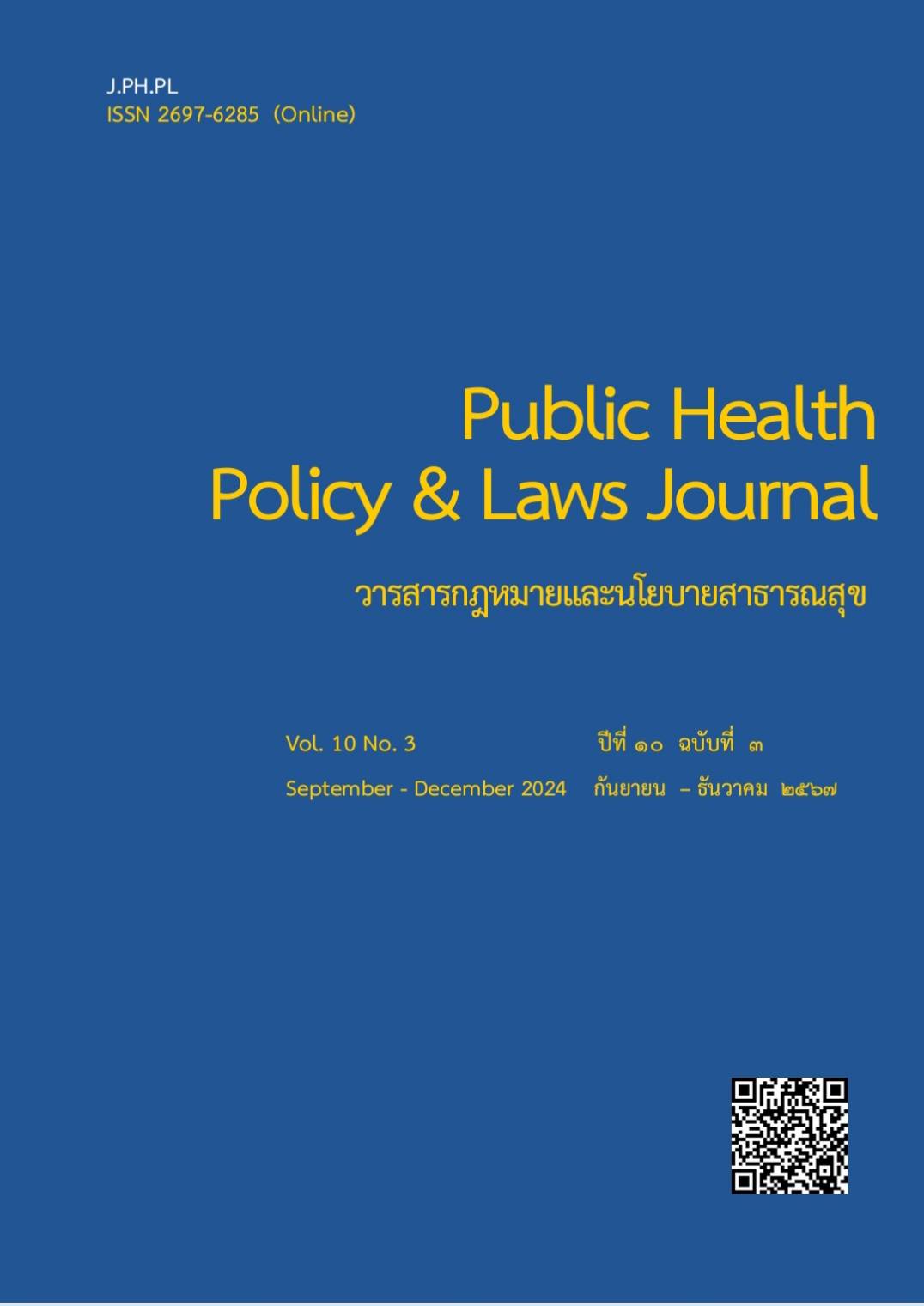The Analysis of the Problems on the Protection of Traditional Knowledge Related to Herbs
Keywords:
Herbs; Traditional Knowledge; Thai Traditional Medicine; Intellectual Property LawsAbstract
Thailand, as a developing country, has a lot of traditional knowledge related to herbs, which developed countries are illegally taking benefits from traditional knowledge without giving anything in return. Therefore, it is crucial to protect local knowledge related to herbs. This article describes legal measures to protect local knowledge related to herbs under international laws and Thai laws, and analyzes problems and propose guidelines for developing such laws in Thailand. It was found that there were several laws of protection for local knowledge related to herbs within the framework of international laws. Thailand has the Protection and Promotion of Thai Traditional Medicine Wisdom Act, B.E. 2542 (1999) and some intellectual property laws related to the protection of traditional knowledge related to herbs. However, there are problems with Thailand's laws to protect such traditional knowledge. Thailand does not yet have specific laws enacted to directly protect traditional knowledge related to herbs. Although there is the Protection and Promotion of Thai Traditional Medicine Wisdom Act, B.E. 2542 (1999), it mostly protects private sector. Moreover, intellectual property laws cannot provide protection. Therefore, specific laws should be enacted to directly protect local knowledge related to herbs, and intellectual property related laws should be amended to allow for greater protection of local knowledge regarding herbs.
References
Department of Intellectual Property. (2024). Traditional Knowledge Database System. [cited 2024 June]. Avaliable from: http://www.ipthailand.go.th/ipthailand/index.php?option
=com_content&task=category§ionid=25&id=161&Itemid=262.
Jakkrit Kuanpoth. (2017). Patent Law: Concepts and Analysis. 4 ed. (Bangkok: Nititham Publication).
Jakkrit Kuanpoth.(2003). International Agreement on Intellectual Property and Impacts on Traditional Knowledge. In Nantanon Intanon. Intellectual Property In Era of Globalization. The Thai Bar Under The Royal Patronang.
National Center for Genetic Engineering and Biotechnology. (2007). Report on the Study of the Framework for Protection of Thai Traditional Knowledge. (Pathum Thani: National Center for Genetic Engineering and Biotechnology).
Pokin Polakul and Chanchai Savangsuk. (1998). Principles of Public Law. 1st. (Bangkok: Nititham Publication).
Shelton, D. (2020). Legal Approaches to Obtaining Compensation for the Access to and the Use of Traditional Knowledge of Indigenous People. California: Berkley.
Shiratori, K., et al. (1990). Plaunotol inhibits postprandial gastrin release by its unique secretin-releasing action in humans. Digestive Diseases and Sciences. 35(9), (September 1990).
The Secretariat of The House of Representatives. (2012). Community Rights According to the Thai Constitution. (Bangkok: The Secretariat of The House of Representatives).
Downloads
Published
How to Cite
Issue
Section
License
Disclaimer and Copyright Notice
The content and information presented in articles published in the Journal of Law and Public Health Policy represent the opinions and sole responsibility of the respective authors. The editorial board does not necessarily agree with or assume any responsibility for the views expressed.
All articles, data, content, images, and other materials published in the Journal of Law and Public Health Policy are the intellectual property of the journal. Any individual or organization wishing to reproduce, distribute, or otherwise use the entirety or any part of such materials must provide proper citation.





